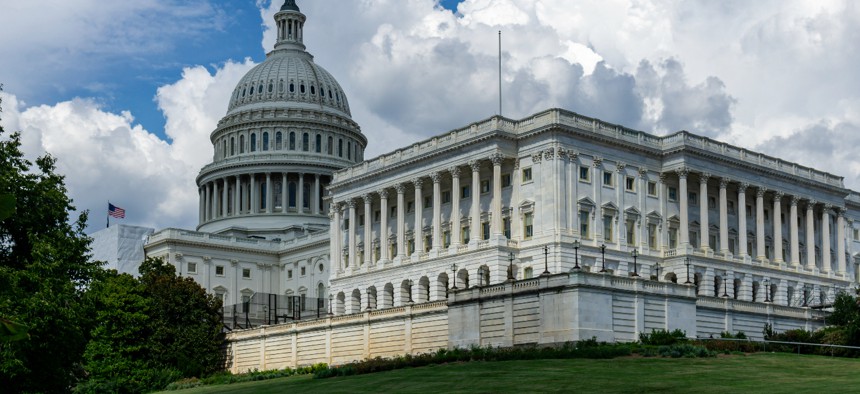House committee introduces 5 guardrails for internal AI use

RiverNorthPhotography/Getty Images
The Committee on House Administration released its April AI Flash Report reviewing past and present agenda items to implement AI systems in legislative operations.
The Committee on House Administration provided an update in its ongoing series that aims to help guide the usage of artificial intelligence within the U.S. House of Representatives and other legislative branch entities.
Released on Wednesday morning, the April 2024 AI Flash Report includes 5 formalized AI guardrails to promote responsible use of the technology within the House itself: incorporating human oversight and decision-making; implementing clear and comprehensive policies; robust testing and evaluation; transparency and disclosure protocols; and promoting education and upskilling within the legislative workforce.
As part of the development of the 5 guardrails, the committee held a private roundtable on March 19, featuring participation from officials like Elhamn Tabassi, the associate director for emerging technologies at the National Institute of Standards and Technology, as well as representatives from the Chief Administrative Officer, the Clerk of the House, the Legislative Counsel of the House, the House Sergeant At Arms, the House Inspector General, the House General Counsel and the House Parliamentarian.
“This well-attended internal event allowed for a wide-ranging discussion about how much authority the House might delegate to AI technologies in the pursuit of operational efficiencies,” the report reads.
Co-produced by Committee Chairman Bryan Steil, R-Wis., Committee Ranking Member Joseph Morelle, D-N.Y., Subcommittee on Modernization Chairman Stephanie Bice, R-Okla., and Subcommittee on Modernization Ranking Member Derek Kilmer, D-Wash., the report documents the AI-centric activities the committee has taken in recent months, as well as upcoming AI-related activities.
These efforts include upskilling of staff , holding relevant hearings, and harmonizing use cases for the House. According to the report, the committee approved the use of ChatGPT Plus for certain staff with the goal of informing future best practices for such tools.
Other government entities, including the Smithsonian, the Architect of the Capitol and the U.S. Capitol Police also worked with the committee to develop AI implementation and governance frameworks to help plan future usage of AI products.
The report continues to detail the upcoming agenda items for the committee and its focus areas, such as examining how the federal acquisitions process can help foster safe AI use.
A committee spokesperson confirmed to Nextgov/FCW that it will leverage the five new guardrails to ask a series of AI-related questions about the reauthorization and the purchase of new House-approved software.
Establishing firm cybersecurity and information technology protocols alongside the implementation of AI softwares is also a priority item. The spokesperson noted that the committee is seeing “serious attention and discussion internally” on marrying new AI systems with larger IT policies.
“Over the next three months, CHA anticipates focusing on the ways the acquisitions process can be used as an effective checkpoint to ensure the responsible use of AI,” the report reads. “CHA will also be learning more from state and local governments about how they are using AI technologies in their legislative operations.”






